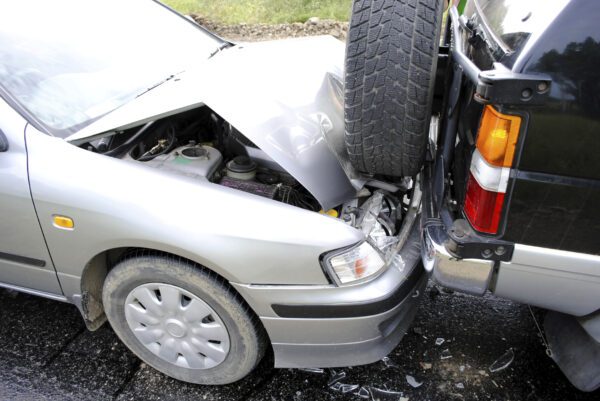
If you got hit from behind while driving and are wondering, “Should I sue if I got rear-ended?” then the short answer is that you can if you choose to, but there might be other factors to consider before filing a lawsuit. Receiving compensation for your damaged vehicle is typically a straightforward affair once the fault has been established and once the vehicle’s damage has been assessed. However, if you are injured in the collision, receiving the compensation you deserve for those injuries may be a source of frustration. Insurance companies routinely seek to settle injury claims quickly to undercompensate you, or they may resist resolving or settling your insurance claim to your satisfaction.
If you are considering legal action after a rear-end collision or if you are unsure what to do, here are several reasons why you would benefit from speaking with a car accident attorney to discuss the circumstances of your case.
Who is likely to be at fault for a rear-end collision?
For the majority of rear-end collisions, the driver who hit the car is likely at fault. Though there are exceptions, these cases are usually settled out of court. That is due to the general assumption that it is the responsibility of the rear driver not to hit the vehicle in front of them, and therefore it is the negligence of the rear driver that caused the accident. A prime cause of rear-end collisions is distracted driving. In Maine, it is a crime to drive distracted, especially texting. Other common reasons for rear-end collisions include speeding, tailgating, driving under the influence of drugs or alcohol, poor road conditions, bad weather, or faulty brakes.
Nevertheless, other circumstances or mitigating factors may shift the responsibility of who’s at fault in a rear-end collision. There are a handful of reasons the lead vehicle can be held responsible, or bear some level of liability, for causing a rear-end collision. On such occasions, if the lead car’s brake lights are not working, or the turn signal is not used or malfunctioning. Should the car stop abruptly for no valid or apparent reason or road rage? If the lead car merges dangerously into traffic or reverses suddenly, or backs out from a driveway. All such actions or circumstances can shift some or all of the liability for the accident from the rear car to the lead one. Sometimes, negligence can be relative.
In the state of Maine, car accidents are adjudicated according to the concept of “modified comparative negligence.” This means that both drivers can receive a share of the blame. However, if the percentage of negligence for the plaintiff in the case reaches a certain level, they will receive no compensation at all. It could also be that an auto manufacturer may be liable for any vehicular flaws that contributed to the crash.
Whose insurance will likely pay the damages?
If you are in any car accident in Maine, the party that caused the accident is held liable. That person is considered at fault, and their insurance company must pay for the cost of damages and medical expenses via the liability coverage of that policyholder’s car insurance. To be awarded compensation for damages and injuries after a rear-end collision, determining who is at fault must be established.
Why you shouldn’t ignore signs of injury.
Even if the rear-end collision is a minor “fender bender,” you should not ignore any signs of an injury after the accident. Numbness in your fingertips or shooting pain in your back could be a symptom of a serious injury. In many instances, your body’s reaction to an injury—nerve damage, a concussion, or whiplash—may not be immediate or obvious. The adrenaline rush from the accident can distract or mask the injuries for hours and sometimes days. Never refuse medical care at the scene of the accident if it is offered. First, that slight discomfort you may be experiencing could turn into something more serious. But by refusing medical treatment after an accident, you will be giving the insurance company a reason to deny any future claims.
Why you should get a lawyer.
When all factors are considered after a rear-end collision, whether you were the front or rear driver, it becomes clear that some rear-end lawsuits may not be as clear-cut as they may seem at first. A car accident lawyer specializing in cases like rear-end collisions can help ensure that liability for the accident is placed where it belongs and that you receive the compensation you deserve. It’s not about being sue-happy but ensuring you are protected financially after an accident like this. Damages and injuries can cost you time and money—missing work, medical bills, car repairs, etc. Suppose you show signs of an injury after a rear-end collision or feel that you are not justly compensated. In that case, you should not hesitate to call an experienced auto accident attorney.

